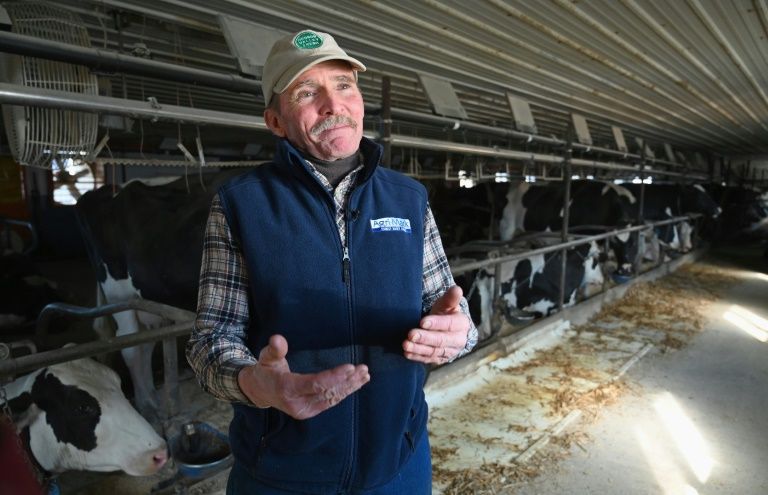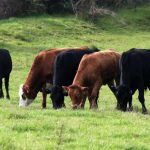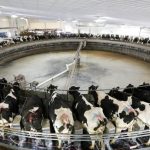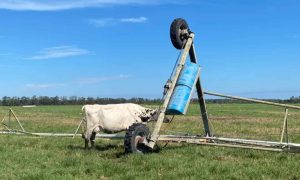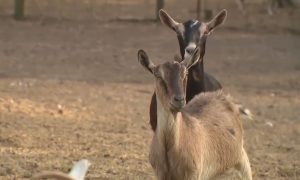The costs of food production — in fuel, in labor — do not stop increasing. Davenport is particularly worried about a new state law that requires him to pay workers overtime if they work more than 60 hours a week.
At the end of the day, “it’s the last man standing,” said Davenport, without bitterness. The larger farms have more chance of success, while the smaller ones will suffer.
The reasons may vary — in too much debt, or at retirement age with no successor, or because the land is worth more than it can yield as a farm — many farmers have thrown in the towel.
The number of dairy farms in the US dropped 20 percent over five years, ending up at 37,468 at the end of 2018.
“In my town here in 1987, there were 27 producing dairy farms,” Davenport said. “Now there are three.”
The small rebound in milk prices at the end of 2019 has allowed for a little hope, but the situation is still tenuous.
– Quality premium –
If Davenport makes it through, it will be due to the quality of his milk, for which he has won numerous awards.
Everything comes down to cleanliness, he said. In the stable, the cow dung is regularly removed with a scraper. At milking time, the cows’ teats are carefully disinfected and then cleaned before they are hooked up to the milking machines.
The farmer receives a quality premium from Agri-Mark, the company to which he sells most of his products.
He also sells milk, yogurts and cream — at a slightly elevated price — under the brand name Hudson Valley Fresh, which he started with 10 other farmers in the region, to high-end stores in New York or to coffee shops that want to know their suppliers.
Involved in local life, Davenport admits that he is not the best manager. But the goal, he said is to be “financially successful enough to cut back on the hours.”
“I originally said I’d like to be down to 60 hours a week when I was 60. That’s not going to happen,” he said.
“So now I’m shooting for down to 70 hours a week by the time I’m 70.”
